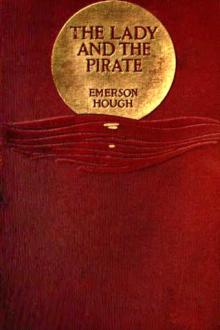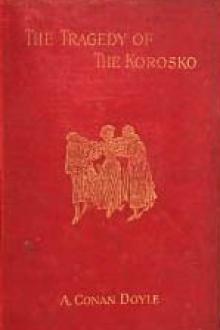Genre Fiction. Page - 231

bably rewards for his capture which, in the aggregate, offered immense inducement to deliver Anthony Trent to justice. How was Trent to know that Sutton the adjutant was financially secure enough to make the sacrifice? Undoubtedly he had seen Sutton and made the desperate leap.
Sutton determined to safeguard his interests. The baggage for instance, that should not be searched. There might be in it evidence as damaging as that which the brothers of Joseph put into the younger's sack. It would be far better to see the captain and make a friend of him. Why had not Trent been a better reader of character and recognized that in Captain Sutton he had a friend?
Sutton did not know that long ago Trent had seen that in the rich lawyer there was one whom he need not fear. Few were more skilled than the master criminal in the reading of those signs by which men reveal for a second or so the depths of their natures.
Anthony Trent had not jumped from the rails of the big ship because he had seen Sutto

t make much of a job at it. The indisputable facts were that Mac was an outlaw and a horse thief. Very likely a price was already on his head.
The redheaded boy rolled another cigarette despondently. "Sho! I've cooked my goose. She'll not look at me--even if they don't send me to the pen." In a moment he added huskily, staring into the deepening darkness: "And she's the best ever. Her name's Myra Anderson."
Abruptly Mac got up and disappeared in the night, muttering something about looking after the horses. His partner understood well enough what was the matter. The redheaded puncher was in a stress of emotion, and like the boy he was he did not want Curly to know it.
Flandrau pretended to be asleep when Mac returned half an hour later.
They slept under a live oak with the soundness of healthy youth. For the time they forgot their troubles. Neither of them knew that as the hours slipped away red tragedy was galloping closer to them.

home of the American Minister to the Court of St. James.
BY OSCAR WILDE
The Canterville Ghost
BY OSCAR WILDE
I
When Mr. Hiram B. Otis, the American Minister, bought Canterville Chase, everyone told him he was doing a very foolish thing, as there was no doubt at all that the place was haunted. Indeed, Lord Canterville himself, who was a man of the most punctilious honor, had felt it his duty to mention the fact to Mr. Otis when they came to discuss terms.
"We have not cared to live in the place ourselves," said Lord Canterville, "since my grand-aunt, the Dowager Duchess of Bolton, was frightened into a fit, from which she never really recovered, by two skeleton hands being placed on her shoulders as she was dressing for dinner, and I feel bound to tell you, Mr. Otis, that the ghost has been seen by several living members of my family, as well as by the rector of the parish, the Rev. Augustus Dampier, who is a Fellow of King's College, Cambridge. After the unf

currences were ever mentioned in hearing of the children. They would have been, no doubt, like most children, greatly terrified had they heard any thing of the matter, and known that their elders were unable to account for what was passing; and their fears would have made them wretched and troublesome.
They used to play for some hours every day in the back garden--the house forming one end of this oblong inclosure, the stable and coach-house the other, and two parallel walls of considerable height the sides. Here, as it afforded a perfectly safe playground, they were frequently left quite to themselves; and in talking over their days' adventures, as children will, they happened to mention a woman, or rather the woman, for they had long grown familiar with her appearance, whom they used to see in the garden while they were at play. They assumed that she came in and went out at the stable door, but they never actually saw her enter or depart. They merely saw a figure--that of a very poor woman, soiled an

Co., bankers, of Liverpool. I join herewith a series of cheques, signed by me, which will allow you to draw upon the said Messrs. Marcuart for the above-mentioned sum. You do not know me, but that is of no consequence. I know you: that is sufficient. I offer you the place of second on board the brig Forward for a voyage that may be long and perilous. If you agree to my conditions you will receive a salary of 500 pounds, and all through the voyage it will be augmented one-tenth at the end of each year. The Forward is not yet in existence. You must have it built so as to be ready for sea at the beginning of April, 1860, at the latest. Herewith is a detailed plan and estimate. You will take care that it is scrupulously followed. The ship is to be built by Messrs. Scott and Co., who will settle with you. I particularly recommend you the choice of the Forward's crew; it will be composed of a captain, myself, of a second, you, of a third officer, a boatswain, two engineers, an ice pilot,

whispered the pirate captain dubiously, aside.
"Speak on!" again commanded he of the blue eyes. "But your life blood dyes the deck if you seek to deceive Jean Lafitte, or Henry L'Olonnois!"
(So then, thought I, at last I knew their names.)
In reply I reached to my belt and drew out quickly--so quickly that they both flinched away--the long handled knife which, usually, I carried with me for cutting down alders or other growth which sometimes entangled my flies as I fished along the stream. "Listen," said I, "I swear the pirates' oath. On the point of my blade," and I touched it with my right forefinger, "I swear that I pondered on two things when you surprised me."
"Name them!" demanded Jimmy L'Olonnois fiercely.
"First, then," I answered, "I was wondering what I could use as a cork to my phial, when once I had yonder Anopheles in it----"
"Who's he?" demanded Jean Lafitte.
"Anopheles? A friend of mine," I replied; "a mosquito, in short."
"Jimmy, he's cr

ctantly for a titter, and bowed to it when it arrived. "You will then return to Wady Halfa, and there remain two hours to suspect the Camel Corps, including the grooming of the beasts, and the bazaar before returning, so I wish you a very happy good-night."
There was a gleam of his white teeth in the lamplight, and then his long, dark petticoats, his short English cover-coat, and his red tarboosh vanished successively down the ladder. The low buzz of conversation which had been suspended by his coming broke out anew.
"I'm relying on you, Mr. Stephens, to tell me all about Abousir," said Miss Sadie Adams. "I do like to know what I am looking at right there at the time, and not six hours afterwards in my state-room. I haven't got Abou-Simbel and the wall pictures straight in my mind yet, though I saw them yesterday."
"I never hope to keep up with it," said her aunt. "When I am safe back in Commonwealth Avenue, and there's no dragoman to hustle me around, I'll have time to read about it all,

th whom personally I had but a slight acquaintance, although I knew them somewhat by reputation. The younger one, Clinton Browne, is a young artist whose landscapes were beginning to attract wide attention in Boston, and the elder, Charles Herne, a Western gentleman of some literary attainments, but comparatively unknown here in the East. There is nothing about Mr. Herne that would challenge more than passing attention. If you had said of him, "He is well-fleshed, well-groomed, and intellectually well-thatched," you would have voiced the opinion of most of his acquaintances.
This somewhat elaborately upholstered old world has a deal of mere filling of one kind and another, and Mr. Herne is a part of it. To be sure, he leaves the category of excelsior very far behind and approaches very nearly to the best grade of curled hair, but, in spite of all this, he is simply a sort of social filling.
Mr. Browne, on the other hand, is a very different personage. Of medium height, closely knit, with the lat

ople were blessed and shriven by the tremblingpriests. Outside no bird flew, and there came no rustling fromthe woods, nor any of the homely sounds of Nature. All was still,and nothing moved, save only the great cloud which rolled up andonward, with fold on fold from the black horizon. To the west wasthe light summer sky, to the east this brooding cloud-bank,creeping ever slowly across, until the last thin blue gleam fadedaway and the whole vast sweep of the heavens was one great leadenarch.
Then the rain began to fall. All day it rained, and all the nightand all the week and all the month, until folk had forgotten theblue heavens and the gleam of the sunshine. It was not heavy, butit was steady and cold and unceasing, so that the people wereweary of its hissing and its splashing, with the slow drip fromthe eaves. Always the same thick evil cloud flowed from east towest with the rain beneath it. None could see for more than abow-shot from their dwellings for the drifting veil of ther

ub offer Tuzun Thune that would make of him a foul traitor?"
"Gold, power, and position," grunted Brule. "The sooner you learn that men are men whether wizard, king, or thrall, the better you will rule, Kull. Now what of her?"
"Naught, Brule," as the girl whimpered and groveled at Kull's feet. "She was but a tool. Rise, child, and go your ways; none shall harm you."
Alone with Brule, Kull looked for the last time on the mirrors of Tuzun Thune.
"Mayhap he plotted and conjured, Brule; nay, I doubt you not, yet--was it his witchery that was changing me to thin mist, or had I stumbled on a secret? Had you not brought me back, had I faded in dissolution or had I found worlds beyond this?"
Brule stole a glance at the mirrors, and twitched his shoulders as if he shuddered. "Aye, Tuzun Thune stored the wisdom of all the hells here. Let us be gone, Kull, ere they bewitch me, too."
"Let us go, then," answered Kull, and side by side they went forth from the House of a Thousand M